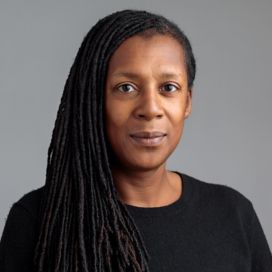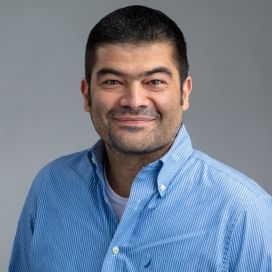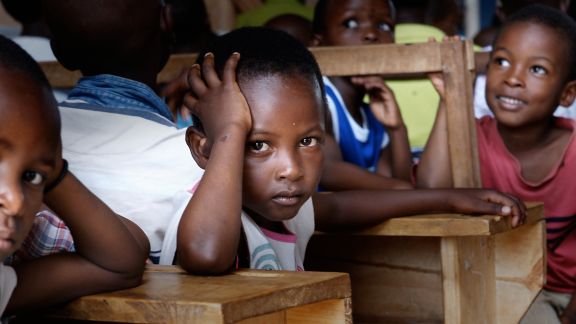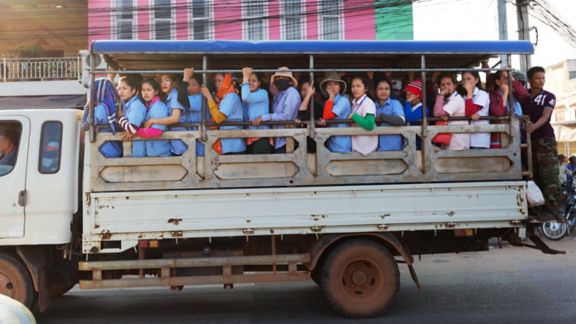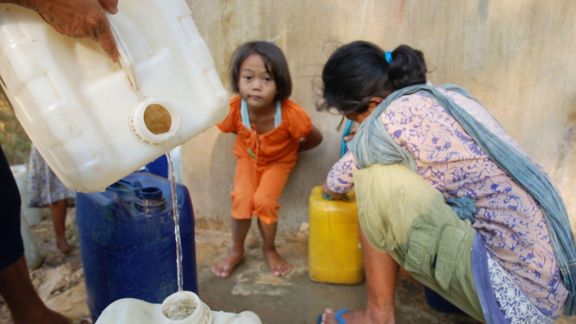Since 2008, NORC has conducted over 180 mixed methods impact and performance evaluations and associated quantitative and qualitative data collection in over 100 countries. Our evaluations cover a wide range of sectors, including democracy and governance; agriculture, resilience, and food security; education and girls' empowerment; water, transport infrastructure, and WASH; and land and natural resource governance.
NORC participates in every step of the research chain:
- Co-designing the evaluation with clients, stakeholders, and implementers
- Developing sampling and analysis plans
- Drafting modality-specific quantitative and qualitative data collection instruments
- Contracting and overseeing local data collection partners
- Analyzing data
- Drafting knowledge products with state-of-the-art data visualization
- Implementing dissemination and learning activities
NORC’s impact evaluations use experimental and quasi-experimental designs and cutting-edge methods such as statistical, time series, Bayesian, and econometric modeling. For USAID/South Africa, NORC used a randomized control trial (RCT) and early-grade reading data to assess the impact of a story-centered teaching method on students’ reading outcomes. For Opportunity International in Ghana, NORC's quasi-experimental evaluation used an innovative causal-chain model framework and a matched difference-in-difference method to assess the impact of an agricultural finance program on farmer households. In Ivory Coast, NORC’s quasi-experimental evaluation of a new toll bridge used synthetically matched road intersections as the counterfactual for exposure to traffic congestion, with a Highway Development and Management (HDM-4) model to account for commuter outcomes.
NORC’s performance evaluations combine document reviews, survey data, and rich qualitative data gathered through focus group discussions (FGDs), key informant interviews (KIIs), and site visits to assess project implementation and outcomes, providing actionable recommendations.
For a mid-term evaluation of the New Employment Opportunities youth workforce program in Latin America and the Caribbean, NORC conducted web surveys of implementers, employers, and youth, conducted in-depth KIIs, and prepared case studies in six countries to assess program effectiveness and recommend ways to optimize implementation and sustainability. In the Philippines, we conducted a performance evaluation of a nationwide local government-based community development program, conducting over 160 KIIs and nine FGDs in multiple municipalities to provide recommendations for the program’s ongoing implementation by the Philippine Government. For a complexity-aware (C-A) evaluation of a fellowship program for young Southeast Asian leaders, NORC adapted its research strategy in response to emergent findings and led capacity building in C-A monitoring, evaluation, and learning.
NORC’s impact evaluations use experimental and quasi-experimental designs; the application of “big data,” and machine learning; and cutting-edge methods such as statistical, time series, Bayesian and econometric modeling. For USAID/South Africa, NORC used a randomized control trial (RCT) and early-grade reading data to assess the impact of a story-centered teaching method on students’ reading outcomes. For Opportunity International in Ghana, NORC's quasi-experimental evaluation used an innovative causal-chain model framework and a matched difference-in-difference method to assess the impact of an agricultural finance program on farmer households. In Abidjan, Ivory Coast, NORC’s quasi-experimental evaluation of a new toll bridge used synthetically matched road intersections as the counterfactual for exposure to traffic congestion, with a Highway Development and Management Model (HDM-4) model to account for commuter outcomes.
International Evaluation Experts
-
Clifford Zinnes
Senior Fellow -
Alicia Menendez
Senior Fellow -
Cathy Zimmerman
Senior Fellow -
Protik Ali
Principal Research Scientist -
Ritu Nayyar-Stone
Principal Research Scientist -
Lauren Persha
Principal Research Scientist -
Santadarshan Sadhu
Principal Research Scientist -
Audra K. Grant
Senior Research Scientist -
Erika V. Keaveney
Senior Research Scientist -
Alexandre Monnard
Senior Research Scientist -
Alejandro Ome
Principal Research Scientist







